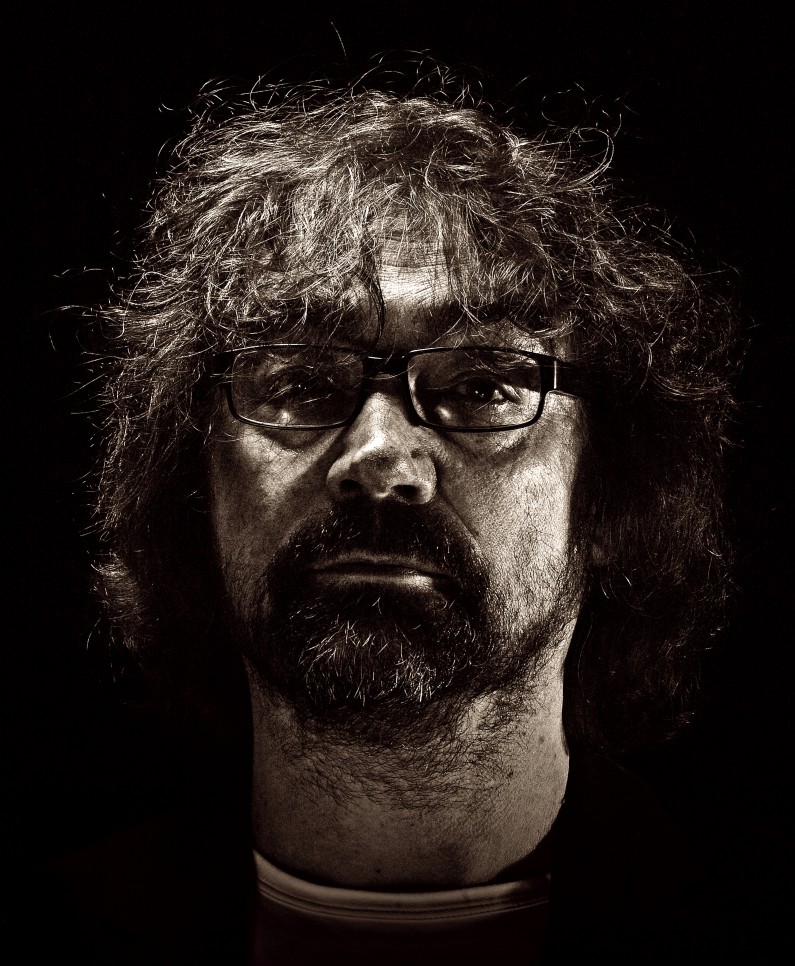Hans-Joachim Irmler
How do you squeeze the life and achievements of someone like Hans-Jochim Irmler, a pioneer of krautrock, electronic music and sound experiments into one A4 sheet? But as the late great Sun Ra (also a great explorer of sound and an “organic” soulmate of Irmler’s) once said: “Man has tried the possible – and was has it lead to? So now it’s time to try the impossible.” (- which is also an apt motto for Irmler’s life and work.) Anyway, here we go:
Born in 1950, Hans-Joachim Irmler began experimenting with sound-generating technology at a very early age. As a teenager, he built his first organ. In 1969, he moved to Hamburg, where he studied art and worked for television. There, he was drawn into a collective of musicians and filmmakers. Out of this loose group, a band crystallized which would become known as Faust – a band which subsequently became known to people with an interest in avantgarde music all around the world.
The band negotiated a contract with Polydor in 1971 in which they were granted their own studio and custom-built sound-processing equipment (unheard of for a “pop” or “rock group” at that time). On their eponymous debut in 1971 (pressed on clear vinyl and housed in a transparent cover), one can hear familiar sounds augmented with electronically generated and distorted ones, which made Faust into probably the most far-out album ever released on a major label. This musical and technological transmutation has become the leitmotiv of Irmler's aesthetic. He always worked with self-built or heavily customized equipment. Thus it is small wonder that when Faust folded in 1975 he started his own keyboard workshop.
But Faust never really stopped, there were always reunions – sometimes private, sometimes public. In 1994, he and two other core-members of Faust record Rien, the first album in 20 years,. It was produced by Jim O'Rourke and released on Jeff Hunt’s Table Of Elements, one of the prime labels for so-called post-rock in the 90s. Irmler went on to form his own label Klangbad in 1996, on which he published not only Faust, but also other bands, most of whom he recorded in the label’s own studio (including Custer, Dieter Moebius, Circle, Ectogram, Nightingales, Ole Lukkye, to name but a few) . In 2004, the studio relocated to the premises of a disused paper factory in the rural Swabian village Scheer. It contains all of Irmler’s equipment built over the last 30 years as well as new, computer-based recording tools.
Initially established as a thank you-party for the volunteers who helped in building the new studio, Irmler now runs and curates the internationally acclaimed Klangbad Festival. Since 2004, this annual event attracts audacious locals as well as international music lovers from all over the globe.
After he recorded and released his first solo-album Lifelike in 2003, Irmler has embarked on a long series of improvisations and collaborations with other musicians, among them musician, composer and multimedia artist Alfred 23 Harth (Harth/Irmler/Müller - Taste Tribes on For4ears records), the percussionist Z’ev (on the Fauz’t-CD), drummers Christian Wolfarth and Lucas Niggly (the latter of Steamboat Switzerland-fame), Hans Reichel (guitarrist extraordinaire & inventor of the Daxophone) and trumpeter Franz Hautzinger.
Since 2005, Irmler has been preparing and composing music for an extensive installation called Eroberung des Raums ("Conquest of Space") for the Rem Koolhaas-designed Casa da Música in Porto / Portugal, which premiered on April 7th, 2007.
2010 will see the release of an album which Irmler recorded with his soulmate, the ex-Einstuerzende Neubauten percussionist FM Einheit. He will also tour with Berlin-based post rock-trio To rococo Rot, on whose upcomming album he also plays.
